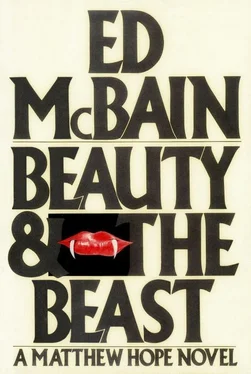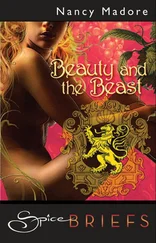“Okay,” I said, and sighed. He was thinking about one of those Hollywood scenes where the entire family congregates in some dusty office to hear an ancient lawyer read a will aloud. In real life, the beneficiaries of a will are normally informed by telephone or mail that they’re about to inherit a large sum of money or a house in Bermuda or a goldfish in a tank. “But think over what I just said, okay? I hate to put you to unnecessary legal expense when, really, you’re adequately—”
“I want that will changed , Matthew!” he shouted, and hung up.
Cynthia buzzed again to say that a man named Abner Fieldston — whose name I remembered from yesterday’s telephone messages — was outside and wondered if he could have a moment of my time. I asked her to show him in. The wall clock read 9:30.
Fieldston was a black man in his midseventies, who told me he’d been born in a small town in Mississippi at a time when the authorities weren’t keeping vital statistics records on blacks. He told me he didn’t have a birth certificate. “I’m getting on in years,” he said, “and I doan even have a certificate of my own birth . Can you get me a birth certificate?”
“Not if one doesn’t exist,” I said.
“Then what am I spose to do?”
“Well, there are other ways of establishing your birth and obtaining the equivalent of a birth certificate.”
“You mean it?” he said, and broke into a wide toothless grin.
“Are your mother or father still alive?”
“No,” he said, and the grin dropped from his face.
“Do you have any older brothers or sisters who are aware of the date and—”
“I’m an only child,” he said.
“How about any aunts or uncles who might know when and where you were born?”
“Aunt Mercy was there at the actual birthing,” he said. “She was midwife to my mother.”
“Is she still alive?”
“Oh, yes.”
“How old is she, Mr. Fieldston?”
“Ninety-eight,” he said.
“Still of sound mind?”
“Sharp as a needle,” he said.
“Let me have her name and address,” I said. “I’ll arrange for an affidavit to be mailed to her.”
“Will that make me legal?” he asked, and grinned again.
“You’ve been legal all along,” I said, and returned his smile.
At a quarter to ten, I began returning some of the calls that had piled up the day before. The first call I made was to a client named Hal Ashton, né Harold Ashkenazy, who was an Equity actor appearing in a production of The Time of Your Life at the Candlelight Club, one of Calusa’s dinner theaters. In the dark, during the curtain calls two nights ago, he had tripped on one of the set’s barstools and broken his collarbone. He wanted to know if he could sue the owner of the place.
“Which place?” I said. “The Candlelight Club, or Nick’s Pacific Street Saloon?”
“Hey, how come you know the name of the bar ?” he asked, pleased. “Did you come see the show?”
“I was in it,” I said.
“What? What do you mean?”
“In college.”
“You’re kidding!”
“Would one old actor kid another?”
“Who’d you play?”
“Blick. The vice-squad cop.”
“He’s the heavy !” Hal said.
“Somebody has to play the heavies,” I said.
“So can I sue or not?” he asked, dismissing my past, brief, illustrious acting career.
“This sounds like a worker’s compensation matter,” I said. “Have you got a pencil?”
“Shoot.”
“Give this man a call,” I said, “tell him I referred you. He’s an attorney who specializes in such claims.”
“Worker’s compensation, huh?” Hal said, disappointed, and then took down the name I gave him.
Cynthia buzzed the moment I hung up.
“Your daughter’s on five,” she said.
I stabbed at the button in the base of the phone.
“Hi, sweetie,” I said.
“Dad, I have to make this fast because I’m in study hall. Mom wants to know should I pack before I come to your house tomorrow, or should I pack later on in the day?”
“What do you mean, later on in the day?”
“I promised her I’d come home for a little while, after the turkey, I mean. Would that be okay? ’Cause I’ll be going to Mexico, and I won’t be seeing her for a whole nine days.”
“Sure, that’s fine. But you’d better pack before , okay? What time did you tell her you’d be back?”
“I said after dinner sometime, is that okay?”
“Fine.”
“Okay, Pops,” she said, and hung up.
She rarely called me “Pops.” I looked at the receiver in wonder, pressed the receiver-rest button for a dial tone, and then — reminded of tomorrow’s festivities by my daughter — placed a call to Dale O’Brien at the law offices of Blackstone, Harris, Gerstein, Garfield, and Pollock.
“Blackstone, Harris, Gerstein, Garfield, and Pollock,” the telephone receptionist said.
“Dale O’Brien, please,” I said.
“May I say who’s calling?”
“Matthew Hope.”
I waited.
“Hello, Mr. Hope?” a woman’s voice said. “This is Cathy, Ms. O’Brien’s secretary. I’m sorry, she’s in a meeting just now, can I have her get back to you?”
I looked up at the wall clock. It was only ten minutes past ten.
“I’ll be leaving here at about noon,” I said. “Ask her to call me before then, would you?”
“Yes, sir.”
“Thank you,” I said, and hung up.
Dale called back twenty minutes later.
“Hi,” she said, “how’s it going?”
“Miserably.”
“Poor baby,” she said. “Wait’ll you see the turkey I bought.”
Dale and my daughter had insisted, against my desire to liberate them from any kitchen chores tomorrow, on preparing an “old-fashioned” Thanksgiving dinner, complete with turkey and stuffing, roasted sweet potatoes, homemade cranberry sauce (“What’s the matter with the canned variety?” I’d asked), green beans, and deep-dish strawberry shortcake, not to mention the celery, olives, home-baked bread, and other assorted goodies that would precede or accompany the main course. I had told them we could do just as well in a restaurant, especially when there were such minor matters as packing to worry about. They had informed me, in something close to high dudgeon, that they would both be packed long before they began preparing the meal, and this was something they wanted to do, and I had better endure it because God knew what we’d be eating in Mexico. What we’d be eating in Mexico had been one of our major concerns. I had visited Jamie Phelps, my family doctor, a man for whom I’d once handled what had turned out to be my initial brush with a homicide case, and he’d prescribed for us a drug named Vibramycin, to be taken every morning as a preventative, and another drug named Lomotil, to be taken only if and when Montezuma’s Revenge struck any one of us. We were still a bit apprehensive. Reminded of dire illness, I suddenly thought of Dale’s cat.
“How’s Sassafras?” I asked.
“Fine,” Dale said. “She doesn’t have worms, they checked, and her fever’s completely gone. One of life’s little mysteries. What time will I be seeing you tonight?”
“Had you planned on staying over, or what?”
“Yes.”
“Then why don’t you come by straight from work?”
“No, I want to pack first. Let’s say eightish, okay?”
“I’ll see you then.”
Cynthia buzzed the moment I put down the phone.
“Honest Abe on five,” she said.
I picked up the phone again.
“Hello, Abe,” I said. “Why don’t we just put in a tie-line?”
Abe Pollock was one of the partners in Blackstone, Harris, Gerstein, Garfield, and Pollock, the firm with the longest name in town. He had no idea that I’d just finished a conversation with Dale, and was understandably baffled by my opening remark.
Читать дальше












